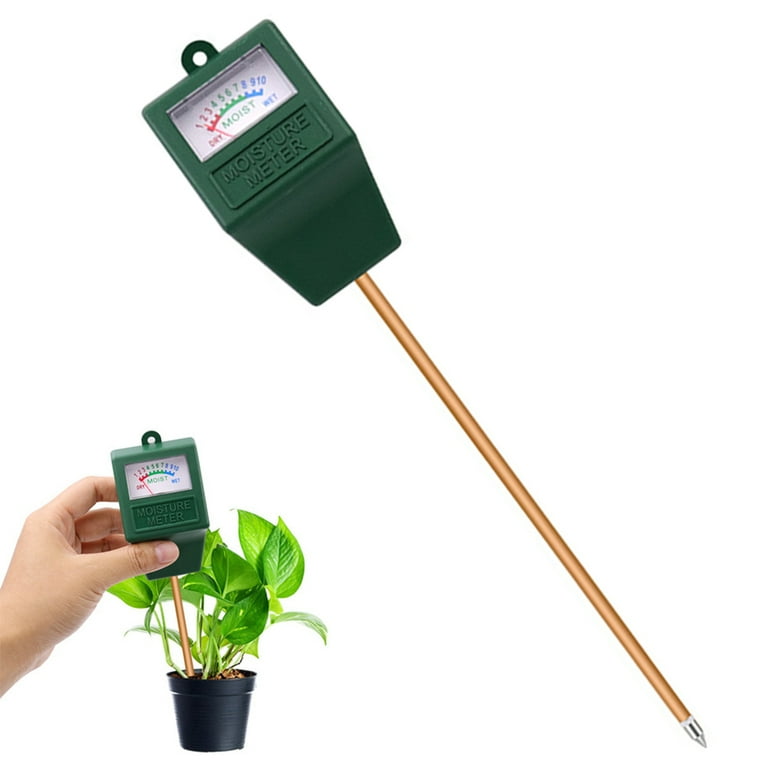The Ultimate Guide to Choosing the Right Moisture Meter for Your Needs
The Ultimate Guide to Choosing the Right Moisture Meter for Your Needs
Blog Article
The Ultimate Overview to Moisture Meters: A Comprehensive Overview and Just How They Can Conserve You Money
Wetness meters serve as essential tools in detecting and checking moisture content in materials, assisting in avoiding expensive problems and ensuring the high quality of items. Recognizing the nuances of different types of wetness meters, their applications, and the possible cost-saving benefits they provide can be a game-changer for businesses and professionals alike.
Kinds Of Moisture Meters
One usual kind is the pin-type moisture meter, which measures the electrical resistance in between 2 pins put right into a material. Pinless wetness meters, on the various other hand, use electromagnetic sensing unit plates to check a larger location without causing damage to the material's surface area.

Moreover, there are additionally specialized wetness meters designed for details materials like dirt, grain, or hay. These meters offer exact wetness readings tailored to the one-of-a-kind residential or commercial properties of the product being checked. Infrared moisture meters determine the thermal buildings of a material to identify its moisture web content non-invasively, making them helpful for applications where pin or pinless meters might not appropriate. Comprehending the various types of dampness meters available can aid industries select the most proper tool for their certain dampness measurement requirements.

Advantages of Using Moisture Meters
Dampness meters use indispensable benefits in accurately keeping track of and examining dampness levels in varied products and environments (Moisture Meter). One of the main advantages of making use of wetness meters is the avoidance of potential damage triggered by excess wetness. By identifying and dealing with high wetness degrees early on, moisture meters assist to avoid mold and mildew development, rot, and architectural damages in buildings, saving both time and money on repair services. In addition, dampness meters help in making certain the top quality of products during construction or manufacturing processes. By accurately determining moisture web content, these devices aid keep the honesty of timber, drywall, concrete, and various other products, decreasing the danger of failures or problems.
Additionally, making use of dampness meters can lead to enhanced energy efficiency. By identifying locations with high wetness levels, such as leakages or inadequate insulation, changes can be made to enhance energy preservation and minimize utility costs. In farming settings, moisture meters play an essential duty in enhancing plant returns by allowing farmers to check dirt moisture degrees and make notified watering decisions. Overall, the benefits of utilizing wetness meters extend across numerous markets, providing cost-efficient solutions and advertising better quality assurance methods.
Just How to Choose the Right Wetness Meter
When picking a dampness meter, it's crucial to ensure that the meter is appropriate for the specific product you will certainly be screening. Various products have varying electric residential properties that can impact moisture analyses, so choosing a over here meter developed for your product is vital for precise results. By thoroughly assessing these variables, you can select a moisture meter that fulfills your requirements and offers accurate dampness measurements for your tasks.
Appropriate Techniques for Wetness Meter Usage

Cost Savings Through Moisture Meter Applications
Just how can the calculated usage of moisture meters lead to substantial expense savings throughout various industries? In the agriculture market, moisture meters help in identifying the optimal time for gathering crops, stopping over-drying or excess moisture that can affect the final item's quality.
Likewise, Moisture Meter in construction, dampness meters help stop costly problems by identifying wetness levels in building materials, such as timber or concrete, which can lead to architectural concerns if not resolved quickly. By recognizing problem locations early on, contractors can take restorative steps to avoid comprehensive fixings or replacements, eventually conserving money and time.
Additionally, in the food handling industry, moisture meters are necessary for monitoring product high quality and making sure conformity with safety guidelines. By properly measuring moisture material in foodstuff, makers can protect against spoilage, preserve quality, next and reduce waste, causing significant price savings. On the whole, the strategic application of wetness meters is a beneficial investment that can lead to substantial cost reductions and improved efficiency across numerous sectors.
Final Thought
In final thought, wetness meters are useful devices for identifying and gauging moisture levels in numerous products. By utilizing the right dampness meter and adhering to proper methods, customers can properly protect against pricey problems triggered by excess moisture. Buying a high quality wetness meter can result in significant price financial savings in the future by identifying potential concerns at an early stage and enabling prompt removal. Eventually, moisture meters are essential tools for preserving the integrity and long life of structures and materials.
Moisture meters offer as essential devices in discovering and keeping an eye on moisture content in products, aiding in protecting against expensive problems and guaranteeing the top quality of items. Infrared wetness meters measure the thermal properties of a material to establish its dampness content non-invasively, making them helpful for applications where pin or pinless meters may not be appropriate.Dampness meters offer vital advantages in accurately analyzing and keeping track of moisture levels in diverse materials and settings. In farming setups, moisture meters play a critical role in enhancing plant returns by making it possible for farmers to monitor soil moisture levels and make notified irrigation decisions.In final thought, wetness meters are useful devices for measuring and detecting wetness degrees in different materials.
Report this page